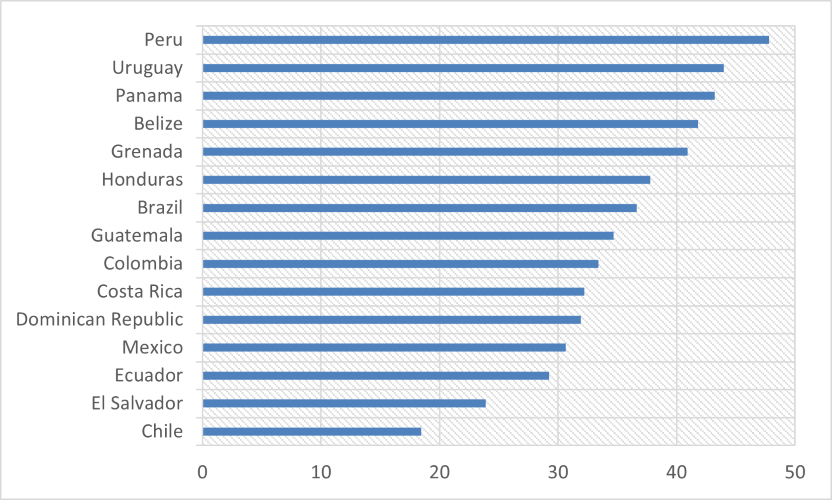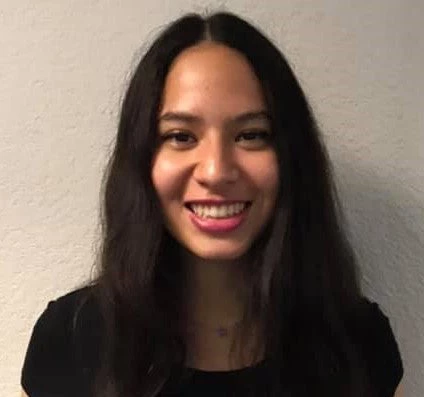 Una mujer trabaja en el laboratorio de LaGeo, planta de geotermia de El Salvador
Una mujer trabaja en el laboratorio de LaGeo, planta de geotermia de El Salvador
Many more women today choose to become engineers, medical doctors, professional athletes, artists, mothers. But gender gaps are far from being closed. Women are, together with girls, part of vulnerable groups that face differentiated impacts from crises and climate change. Although the Latin America and the Caribbean (LAC) region has made progress in closing gender disparities, recent crises, such as the COVID-19 pandemic and rising inflation, have disproportionately affected women and girls.
The World Bank´s new 2023 Country Gender Scorecards reflect on the challenges and progress in nine priority areas for the region and highlight gender gaps that require the most urgent attention in 30 LAC countries. The tool relies on data from the WBG’s World Development Indicators to generate a comparative analysis on key indicators. Most importantly, the new scorecards provide examples of evidence-based solutions to close them and offer country-specific resources on gender and poverty.
What do we know about gender gaps in Latin America and the Caribbean?
While gender data in key areas (enrollment in STEM, gender-based violence, access to assets, and time use) remain scarce, data from this year’s Gender Scorecards points to persistent gender disparities in terms of: participation of women and girls in STEM fields (science, technology, engineering, mathematics, and computer science), women’s school-to-work transition, teenage pregnancy, gender-based violence, quality of employment, female entrepreneurship and access to productive assets, and time spent on unpaid household work. Notably, a worrisome widening gap in young men’s likelihood to drop out of school is observed in several countries.
- In most countries in Latin America and the Caribbean, there is only one woman out of every three graduates from STEM fields . The scorecards also show that young women are more likely than young men to be out of employment, education and training; the largest gaps – as large as 36 percentage points- are found in Central America. Additionally, a ‘reverse’ gender gap in enrollment and completion of secondary and tertiary is taking place in the region: In 20 countries, boys are less likely than girls to complete lower secondary education, with the highest difference being 12 percentage points found among Caribbean countries.
There is a low share of female graduates in STEM fields in LAC countries.
Percentage of female graduates from STEM programs in tertiary education, 2016-2018

- Teenage pregnancy and violence against women and girls remain areas where Latin America and the Caribbean must sound the alarm . On average, the regional adolescent pregnancy rate is 54.8 births per 1,000 girls aged 15-19, which puts the region at the second highest in the world, just behind Sub-Saharan Africa. Gender-based violence in LAC countries can be as high as one in four women who have experienced physical and/or sexual intimate partner violence in the last 12 months. Unfortunately, the scarcity of data on this topic (only 8 countries have comparable statistics), limits the possibility of adequately monitoring and addressing this phenomenon.
- Women are, on average, more likely than men to engage in vulnerable employment (own account and contributing family workers) except for some countries in the Caribbean, which is less productive and lower paid. They are less likely to own a financial account and to participate in business ownership. Compared to men, women in LAC countries are as high as 17 percentage points more likely to have vulnerable jobs and as high as 20 percentage points less prone to have a bank account. Complementary analysis by the World Bank’s Gender Innovation Lab for LAC (LACGIL), shows that the pandemic negatively affected these patterns. Many new jobs created after COVID-19, especially for women, are informal.
- Men in Latin America and the Caribbean countries only spend 3 percent of their day on unpaid domestic and care work, while women dedicate 15 to 30 percent of their day to these activities . This confirms the persistence of a gap around a division of time on unpaid household work that the pandemic widened further. Yet again, the limited availability of data on this topic (only 9 countries have comparable statistics) poses an added challenge to quantifying this gap.
Change is possible and can be promoted by deliberate interventions, as also shown in several recent LACGIL studies. Support to women-owned businesses, for instance, can boost sales and be highly cost-effective. In Mexico, modernization of brand value through low-cost consulting services had a return on investment (ROI) of 200 to 800 percent, while a soft skills complement to standard business training had a ROI of about 380 percent.
Also, the success of girls’ transitions from school to work can be improved. A work-study program in Uruguay enabled girls to break the gender earnings gap. After two years, their earnings equaled those of boys who did not participate in the program.
Many Latin American and Caribbean countries have taken steps to address gender gaps, but more work is needed. To ensure effective change, comprehensive evidence-driven reforms can go a long way to improve women’s productive and social inclusion, and the World Bank’s new gender scorecards can be a critical input to inform policies in this regard.
The LAC Regional Gender Coordination within the Poverty and Equity Global Practice, works to strengthen the integration of gender in analytics, operations and country-level engagement in order contribute to advancing gender equality in the region. It leads and oversees the implementation of the WBG’s LAC Gender Action Plan.
The LACGIL within the Poverty and Equity Global Practice, works in partnership with units across the World Bank, aid agencies and donors, governments, non-governmental organizations, private sector firms, and academic researchers. This work has been funded in part by the World Bank Group's Umbrella Facility for Gender Equality (UFGE), a multi-donor trust fund administered by the World Bank to advance gender equality and women's empowerment through experimentation and knowledge creation to help governments and the private sector focus policy and programs on scalable solutions with sustainable outcomes. The UFGE is supported by generous contributions from Australia, Canada, Denmark, Finland, Germany, Iceland, Ireland, Latvia, the Netherlands, Norway, Spain, Sweden, Switzerland, United Kingdom, United States, the Bill and Melinda Gates Foundation, and the Wellspring Philanthropic Fund.






Join the Conversation